
As tens of thousands gathered in London for the capital’s annual Pride parade, LGBT+ artists decried the Supreme Court ruling on the definition of a woman and expressed fears that trans people are being “villainised more than ever”.
At a rainy Pride in London parade, the mayor, Sir Sadiq Khan, shouted “happy pride” and thousands of people walked through central London, alongside staff at The Independent, the official news partner for the event.
Months after the Supreme Court ruled on the definition of a woman, those at the London event, including the singer Olly Alexander, writer Shon Faye and Ellis Howard, the lead actor in the BBC drama What It Feels Like For A Girl, criticised the judgment.
At one stage, protesters with Palestine flags blocked the parade route.
There were shouts for “trans rights now” as rain started to fall on Saturday afternoon.
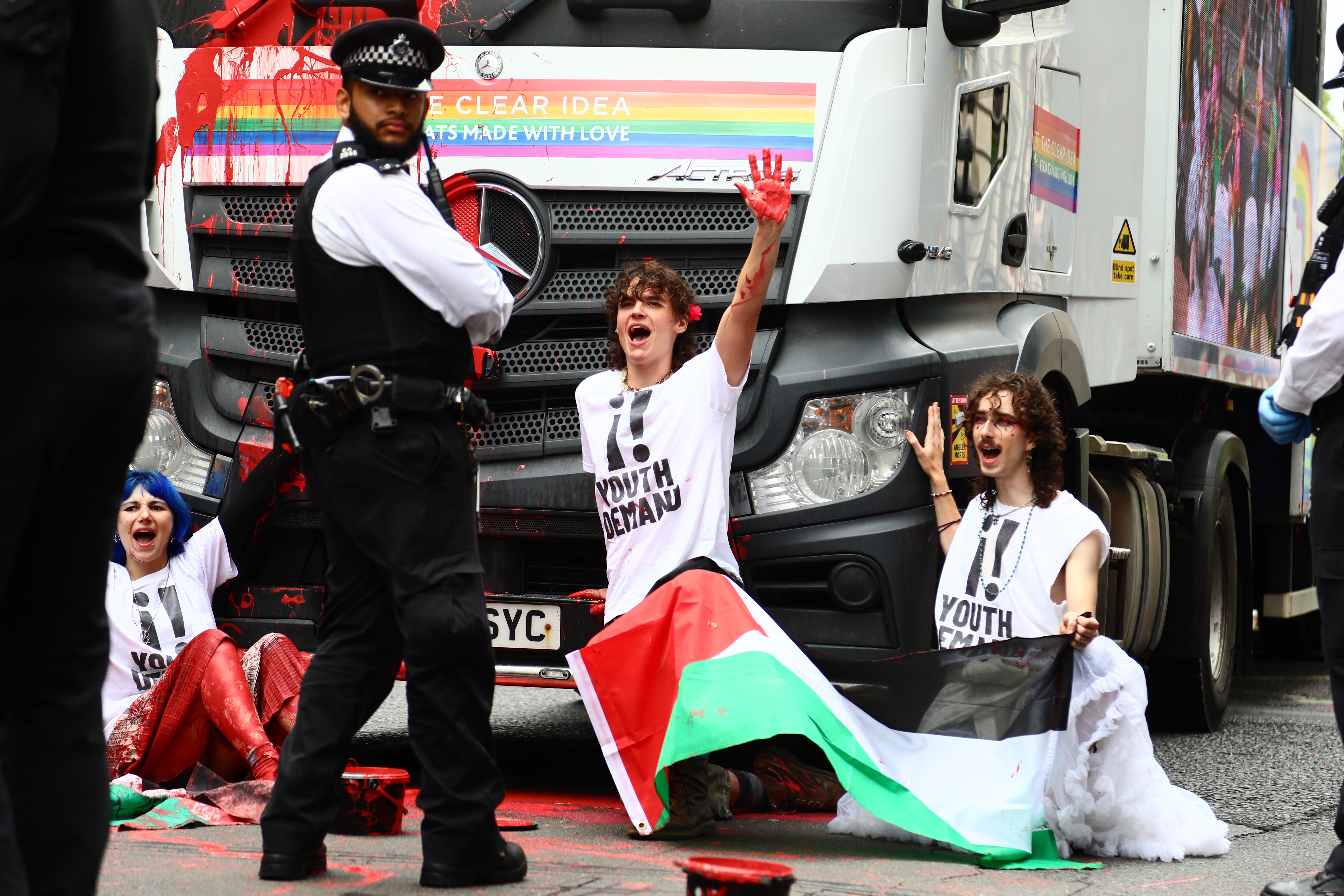
The American singer Chaka Khan headlined the event in which around 500 organisations filed from Hyde Park Corner, through Piccadilly Circus, and on to Whitehall Place.
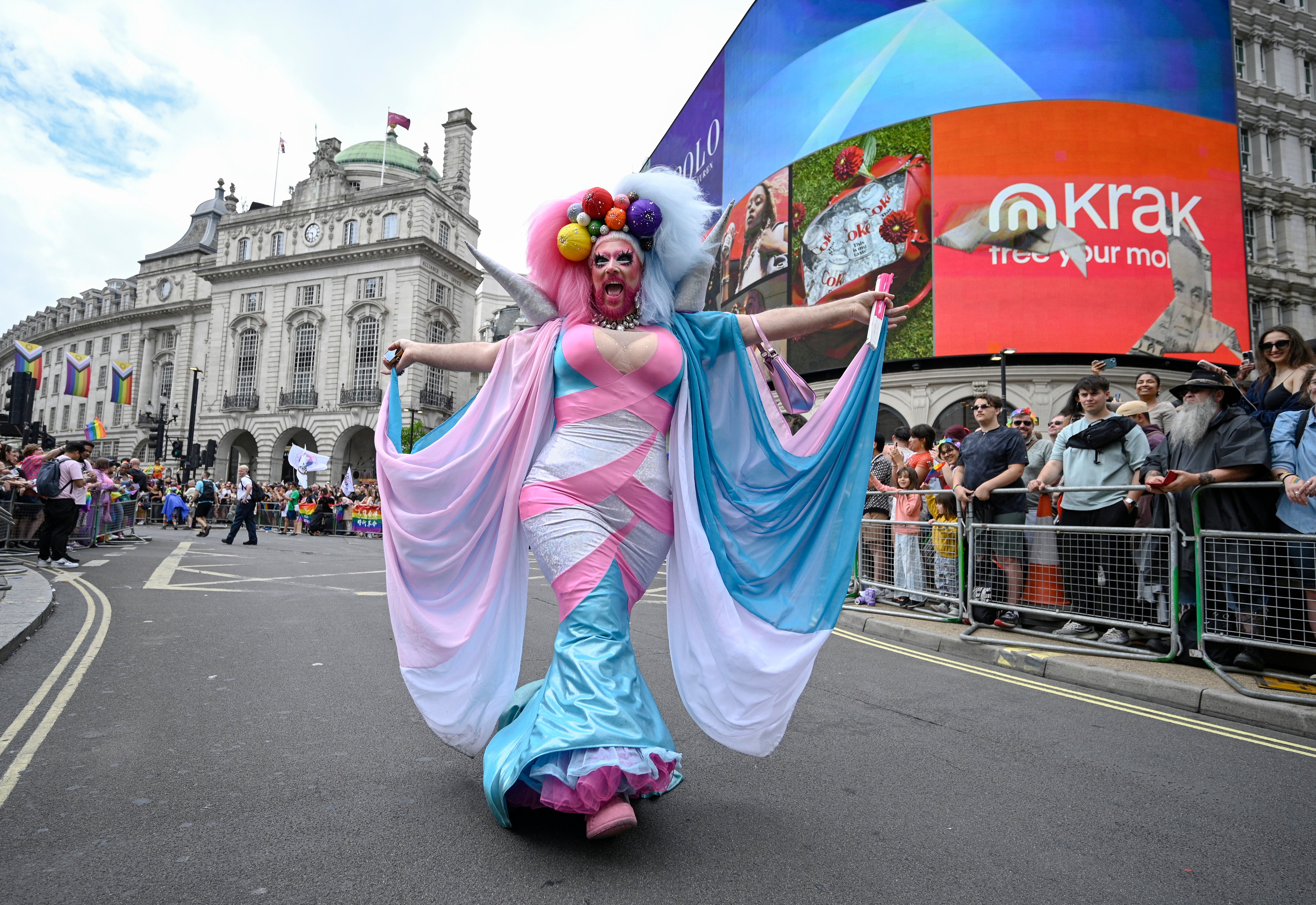
Olly Alexander, the actor and former Years And Years singer, said: “Trans people right now, they need our support and love more than ever, they’re being villainised, demonised in the press, by a lot of the media, and trans people they’re just like us… they’re you, they’re me.
“They deserve the same respect, the same rights, the same privileges, same opportunities, and that’s why Pride is so important this year. There’s been a real backlash against DEI (diversity, equity, and inclusion) policies and that’s been going on for years, and I think we’re in a bit of a swing, that’s going against where we were maybe five years ago.
“We’ve had the Supreme Court ruling and I feel like a lot of trans people are scared, rightfully scared, they don’t understand… what their lives are going to look like.”
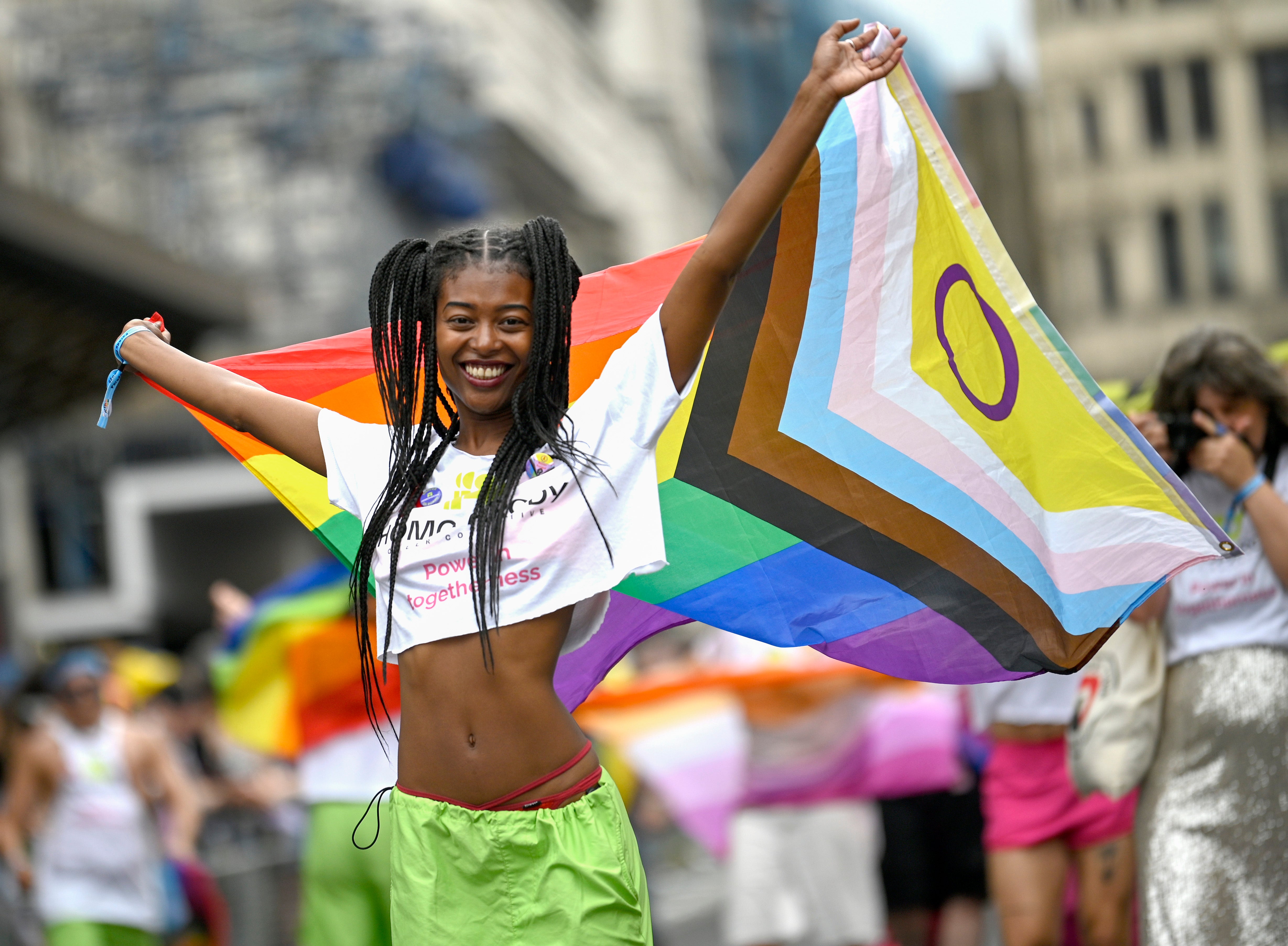
In April the Supreme Court ruled that the words “woman” and “sex” in the Equality Act 2010 refer to a biological woman and biological sex.
Before the march began Shon Faye, the author of Love in Exile and The Transgender Issue, said: “We’ve just seen an unprecedented attack on queer rights and trans rights across the world. For the trans community in particular here in the UK, we’ve seen an onslaught of misinformation, attacks in the media, and unfortunately, the roll-back of human rights in the courts.
“I think a lot of trans people have been made to feel afraid in public space and Pride this year is about taking back public space, and showing that we’re not going to be silenced, and we’re not going to be intimidated.”
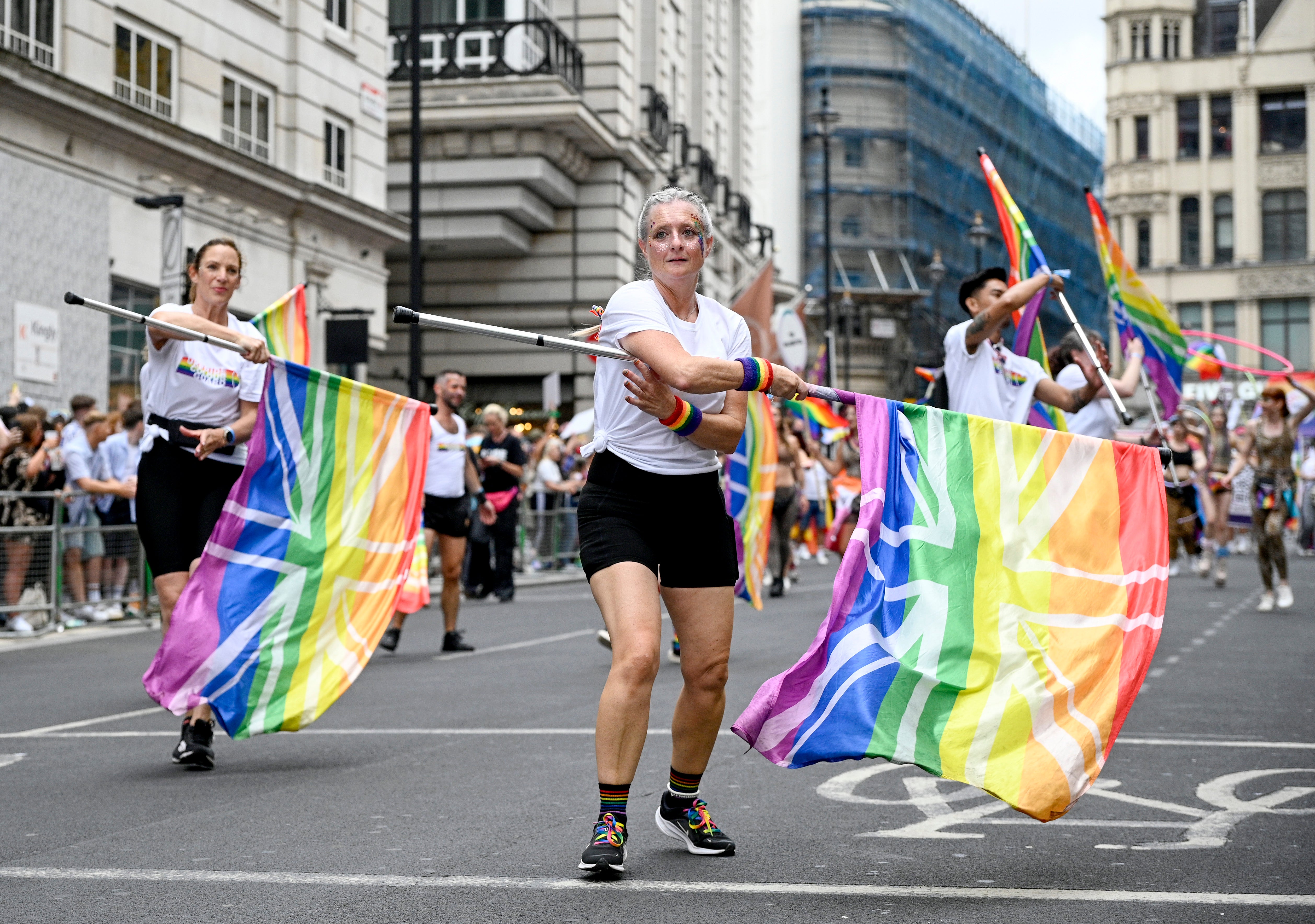
Asked what she hoped would change, Faye said: “I feel like it’s not a one-year change deal… movements move in generations, I think what we have to do now is accept the reality of the situation we’re in and we have to work together with other groups, within the LGBT community and outside it, to really start forming strong coalitions in order to fight this stuff.”
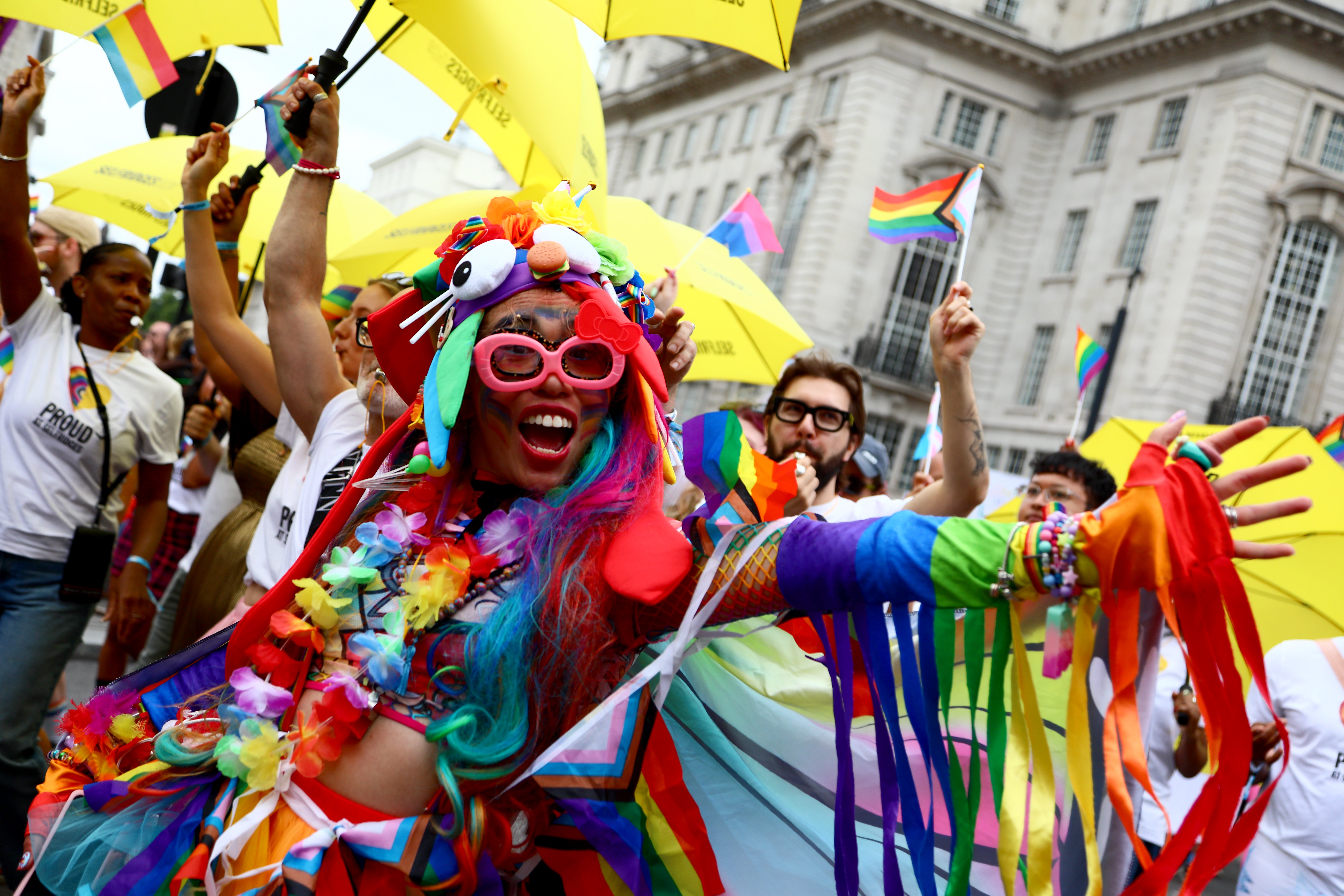
The actor Ellis Howard, who was supporting the trans rights charity Not A Phase at the parade, said: “We’re in an incredibly precarious political time. I think it’s so, so important that we show up as queers, as allies, and we celebrate. Joy is an act of resistance.”
A YouGov poll released ahead of the event found that 67 per cent of people believe the UK is inclusive to LGBT+ people, and 60 per cent would not welcome a shift towards more negative attitudes.
Simon Blake, chief executive of the charity Stonewall, which commissioned the survey, said that despite the findings, “we know many LGBTQ+ people do not feel this in their neighbourhoods and workplaces. In policy terms, the reality is different too. The UK has dropped sharply down the global leaderboard for LGBTQ+ rights.”
According to ILGA-Europe, an umbrella organisation for LGBT+ organisations, this was because of the Supreme Court ruling and subsequent UK Equality and Human Rights Commission guidance.







